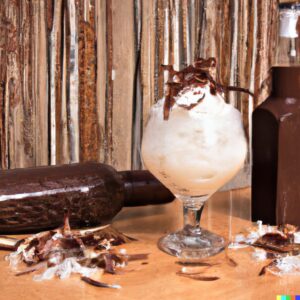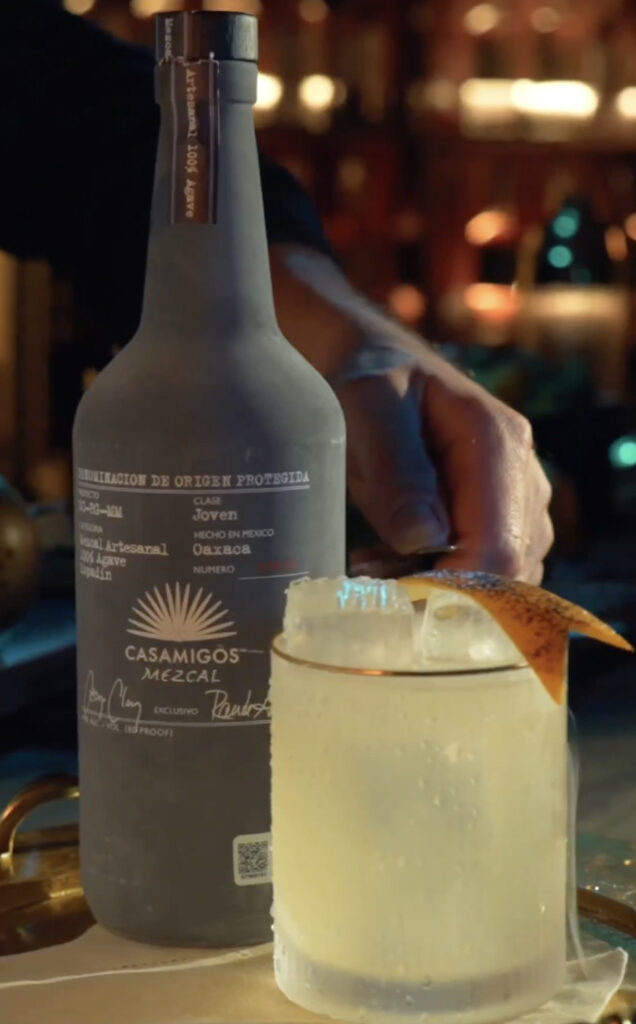
When you make purchases through our links we may earn a small commission.

Photo Credit: Gastro Editorial
Put It On Your Wall: CanvasOnDemand.com
Mezcal and tequila are two distinct spirits that have gained worldwide recognition, each with a unique flavor profile and cultural significance. While both are derived from agave plants and are closely related, they have important differences that set them apart. In this article, we will explore the key differences between mezcal and tequila, shedding light on their production processes, regional variations, flavors, and cultural importance.
Casamigos Mezcal
~ America’s #1 Mezcal ~
Agave Varieties
One of the primary differences between mezcal and tequila lies in the type of agave used in their production. Mezcal can be made from a variety of agave species, with the most common being the Espadín agave. However, it is not limited to this particular type, and different agave varieties can result in unique flavors and characteristics. Tequila, on the other hand, is made exclusively from the Blue Weber agave. This agave is primarily grown in the Tequila region of Mexico, which is also a designated denomination of origin.
Casamigos Mezcal
~ America’s #1 Mezcal ~
Production Process
Mezcal and tequila also differ in their production processes. While they both undergo roasting and fermentation, the methods and techniques vary significantly.
Mezcal production typically involves roasting the agave hearts (piñas) in underground pits lined with hot rocks and earth. This process imparts a smoky flavor to the spirit, one of the defining characteristics of mezcal. After roasting, the agave is crushed, fermented, and then distilled in copper or clay pots. This traditional process often leads to a wide range of flavor profiles, with some mezcals being earthy and vegetal and others exhibiting rich, smoky notes.
Tequila production, in contrast, usually involves roasting the Blue Weber agave hearts in above-ground ovens. This results in a cleaner, more straightforward flavor profile compared to mezcal. After roasting, the agave is crushed, fermented, and distilled in copper pots or more commonly in column stills, resulting in a spirit that is often smoother and more approachable.
Casamigos Mezcal
~ America’s #1 Mezcal ~
Geographic Differences
Mezcal and tequila are also associated with different geographic regions within Mexico. While both are produced in various states across the country, there are specific areas that are particularly known for each spirit.
Mezcal is primarily produced in Oaxaca, where you can find a rich cultural tradition surrounding its creation. This region is known for its diverse agave varieties and artisanal production methods. Some other states, such as Durango and Guerrero, also produce mezcal, each with its unique characteristics.
Tequila, as the name suggests, is centered around the town of Tequila in the state of Jalisco. This region is recognized as the heart of tequila production, and the agave fields here are considered the best for cultivating the Blue Weber agave.
Flavor Profiles
The differences in agave varieties, production methods, and geographic regions result in distinct flavor profiles for mezcal and tequila.
Mezcal often boasts a more robust and complex flavor with prominent smoky, earthy, and sometimes even fruity notes. The diversity of agave species used in mezcal production means that you can experience a wide range of tastes and aromas, making it a spirit appreciated by those seeking unique and adventurous flavors.
Tequila, on the other hand, tends to have a milder, cleaner, and slightly sweeter taste with herbal and citrus undertones. The use of Blue Weber agave and the modernized production techniques contribute to tequila’s approachable and consistent flavor profile.
Casamigos Mezcal
~ America’s #1 Mezcal ~
Cultural Significance
Both mezcal and tequila have strong cultural significance in Mexico. Mezcal is deeply rooted in indigenous traditions and is often associated with rituals and ceremonies. It holds a special place in the hearts of the people of Oaxaca, who have been producing it for generations.
Tequila is also steeped in tradition, with a strong connection to the town of Tequila and the surrounding region. It has become a symbol of Mexican culture and is enjoyed in various ways, from sipping it neat to mixing it into cocktails like the Margarita.
Casamigos Mezcal
~ America’s #1 Mezcal ~
In summary, while mezcal and tequila share a common origin in agave plants and both are quintessentially Mexican spirits, they are distinct in their agave varieties, production methods, flavor profiles, geographic origins, and cultural significance. Mezcal is known for its smoky complexity, diverse agave types, and strong ties to Oaxacan traditions, while tequila is celebrated for its clean, approachable taste and deep connection to the Tequila region. Whether you’re an aficionado of one or both, exploring the world of mezcal and tequila is an exciting journey into the heart of Mexican culture and craftsmanship.

Video: Mira Shape Knitted TRANSPARENT Try-On. YES or NO?

Crafting the Perfect Mezcal Margarita: A Smoky Twist on a Classic

Sipping Tradition: The Mezcal Mule and its Spirited History


Mezcal vs. Tequila: Exploring the Key Differences

Sipping Elegance: The Timeless Allure of Kir Royale

The Art of Whisky Tasting: A Beginner’s Guide

The Gingerbread Rum Old Fashioned: A Spiced Twist on a Timeless Classic

The Margarita: A Timeless Classic with a Twist

48 Hours at the Best New BBQ in Texas



101 Creative Ways to Prepare Potatoes

Sipping Sunshine: The Delightful Citrus White Wine Sangria

Everly Lanes: PSD Underwear Try-On Haul

The Allure of Hibiscus Margarita: A Tropical Twist on a Classic Cocktail

Exploring the World of Mezcal Cocktails: A Connoisseur’s Guide
















